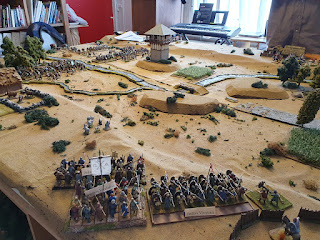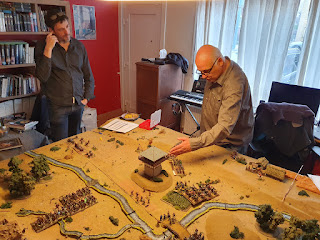This weekend there was another "wargaming B&B" organized by the Tin Soldiers of Antwerp. As always, there was a good atmosphere, and it was a joy to talk with wargaming friends from other gaming groups you typically run into during these events.
So what was my loot?
Nothing too much this time.
- 2 old Avalon Hill games. Perhaps I might even play them sometime.
- A few old wargaming booklets.
- 2 volumes of the Funcken uniform guides from the 60s - always handy to have around as a painting reference.
As usual, a wargaming Bring & Buy always triggers conversations about the meaning of it all. "Aren't we simply shuffling old stuff around, as a merry-go-round?", "Will anyone ever play this stuff?", "What percentage of wargaming stuff bought is actually being used?" Etc.
But the best conversation I had was about the nature of wargaming rules. The number of rulebooks and supplements, big and small, old and new, simple and complex, ... that were on offer was staggering. So many rulesets that are sold 2nd hand without ever having been used ... These days, I don't bother anymore buying myself into the next "hot new ruleset". The illusion I once had that all rulesets were thoroughly researched and playtested before being published is long gone. I prefer writing my own rules, tuned perfectly to the needs or our own group. After all, aren't all the rulesets ever published not someone's houserules, written up as a booklet, and being offered for sale? And if so, it's much better to write your own ... :-)


















